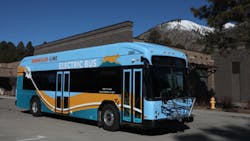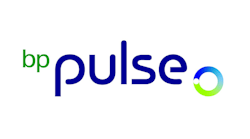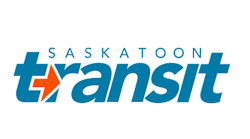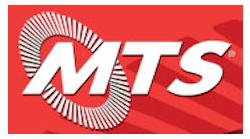Transit EV briefs: TANK; Mountain Line; Saskatoon Transit; RTC of Southern Nevada and San Diego MTS
As transit providers continue to pursue goals to deliver service using low and zero-emission fleets, the past week has delivered a series of developments for transit agencies in Kentucky, Arizona, Saskatchewan, Canada, Nevada and southern California.
TANK
The Transit Authority of Northern Kentucky (TANK) was awarded $2.8 million in state funds from Kentucky to support the purchase of four hybrid electric-diesel buses that will replace four diesel buses that have reached the end of their service life.
“TANK is a major transit provider of this entire region, with a fixed-route system that accounts for some two million passenger trips per year,” said TANK General Manager Gina Douthat. “It is critically important for TANK to keep a modern, reliable fleet of buses on the road.”
The grant is through the Congestion Mitigation and Air Quality (CMAQ) improvement program, which is administered by the Department of Rural and Municipal Aid of the Kentucky Transportation Cabinet.
“This funding will help TANK expand its hybrid bus fleet and reduce overall emissions of greenhouse gases,” Kentucky Gov. Andy Beshear said. “That means cleaner air for residents of Northern Kentucky and the Cincinnati area and more reliable buses for the thousands of people who depend on TANK every day to get them to work, school, shopping and vital services.”
Mountain Line
The first of two grant-funded zero-emission buses entered service April 26 in Flagstaff, Ariz., on Mountain Line’s network. The Gillig-supplied vehicles will serve different routes during its first week of service. The agency reports a single electric bus “cancels out the tailpipe emissions of 30 cars.”
Mountain Line has already received federal grant funding to purchase four additional electric buses and will continue to pursue funding to replace the existing hybrid-electric buses as they reach the end of their useful life. In addition to federal grant funding, Arizona Public Service (APS) is partnering with Mountain Line to study how electric vehicles and charging infrastructure interact with the electric grid. Mountain Line will share battery charging data with APS to inform the utility’s customer programs and energy resource planning.
“Mountain Line’s transition to a zero-emission fleet is a critical component in achieving our community’s carbon neutrality goals,” said Mountain Line CEO and General Manager Heather Dalmolin. “We remain committed to completing this transition in a fiscally responsible manner, monitoring new developments in the electric vehicle realm and adapting our plans to best serve the Flagstaff community.”
Saskatoon Transit
Saskatoon Transit signed a contract for two Nova Bus LFSe+ electric vehicles from that will be the first in the Canadian province. The two buses are expected to be delivered in 2024 and support the city of Saskatoon’s Low Emissions Community Plan and Climate Acton Plan, which targets a reduction of 55,000 metric tons of carbon emissions by 2050, increasing transit trips to five percent of total trips by 2030 and 10 percent by 2050.
Saskatoon Transit received a commitment from the government of Canada and the city to provide joint funding to support its planned transition to zero-emission vehicles.
"Taking transit is already one of the best ways people can reduce their greenhouse gas emissions, but through electrification and other actions outlined in the Low Emissions Community Plan, we’re working to further reduce our impact on the climate,” said Terry Schmidt, general manager of transportation and construction with the city of Saskatoon.
RTC of Southern Nevada
New Flyer of America Inc., a subsidiary of NFI Group Inc., was awarded a five-year contract by the Regional Transportation Commission of Southern Nevada (RTC) to supply seven 60-foot Xcelsior CHARGE FC™ buses, with an option to purchase up to 100 buses. This is the third zero-emission contract RTC of Southern Nevada has awarded to New Flyer.
“Spanning over 30 years of partnership, we have delivered more than 820 buses to RTC. This contract marks RTC's third EV order awarded to NFI, which once again proves NFI's undeniable leadership in mass mobility electrification,” said President, North American Bus and Coach, NFI, Chris Stoddart.
San Diego MTS
San Diego Metropolitan Transit System (MTS), which has committed to transitioning to a zero-emission fleet by 2040, selected bp pulse to manage its growing electric bus fleet through bp pulse’s charge management software, Omega.
The program will begin at the South Bay facility, south of downtown San Diego, where bp pulse will deploy Omega charge management on 36 chargers, with plans to scale operations to three additional locations over the next five years, bringing the expected charger count to 150 across all four locations. Omega will manage DC fast chargers from multiple charger manufacturers at the different locations.
The Omega charge management system will integrate with MTS bus telematics and control systems—responding in real time to changing routes with the capability to prioritize charging-based needs. Through the Omega dashboard, San Diego MTS will be able to monitor state of charge for the electric buses to monitor for efficiency, range and battery life while ensuring vehicles are operating reliably and efficiently. Omega will also assist with utility tariffs management and utility costs, ensuring the transit agency is in compliance with utilities while also providing cost savings, energy efficiency and allow for budgeting.
"Transitioning to a zero-emission bus fleet by 2040 is one of the top priorities for MTS," said MTS Chief Executive Officer Sharon Cooney. "It is a complex process to get this done, with many moving parts. Selecting a vendor for the charge management software was a big step in this process. We are excited to work with bp pulse to provide critical technology to charge our vehicles."

Mischa Wanek-Libman | Group Editorial Director
Mischa Wanek-Libman is director of communications with Transdev North America. She has more than 20 years of experience working in the transportation industry covering construction projects, engineering challenges, transit and rail operations and best practices.
Wanek-Libman has held top editorial positions at freight rail and public transportation business-to-business publications including as editor-in-chief and editorial director of Mass Transit from 2018-2024. She has been recognized for editorial excellence through her individual work, as well as for collaborative content.
She is an active member of the American Public Transportation Association's Marketing and Communications Committee and served 14 years as a Board Observer on the National Railroad Construction and Maintenance Association (NRC) Board of Directors.
She is a graduate of Drake University in Des Moines, Iowa, where she earned a Bachelor of Arts degree in Journalism and Mass Communication.







